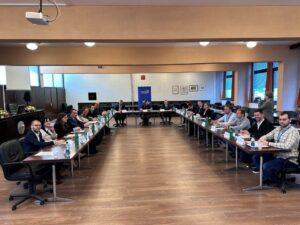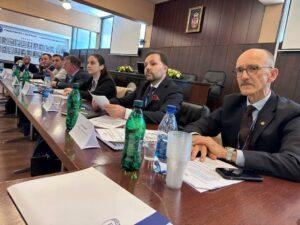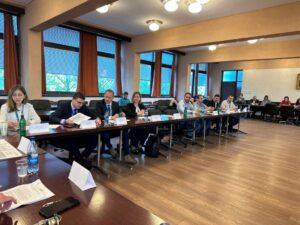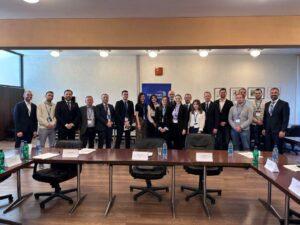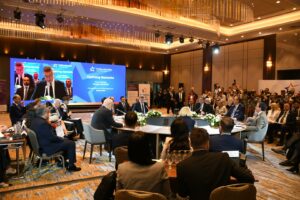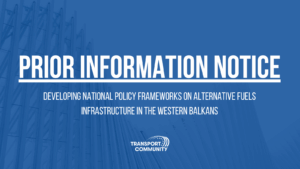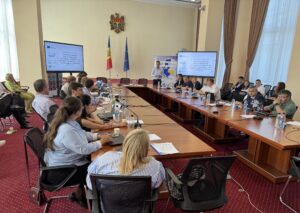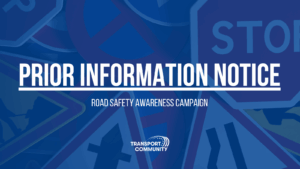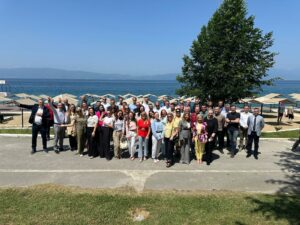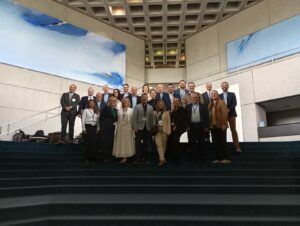The 10th International Conference on Railway Operations Modelling and Analysis – RailBelgrade 2023 has finalised today with one of the key panel discussions revolving around the challenges and opportunities of intermodal and rail freight transport in the Western Balkan region. Participants from both private and public sectors of South East Europe and Georgia were in attendance.
The panel discussion covered several topics, including human resource needs, educational programs for rail specialists, rail freight transport in the South East European region, the role of policymakers and institutional framework for productive rail freight market, multimodality and intermodality for improved carbon footprint, digitalisation of railways, and advantages of rail freight transport in global supply chains.
Human Resources Needs
The South East European region is facing a shortage of skilled labor in the rail industry. The panel discussed the importance of developing educational programs that would cater to the needs of the industry. The participants from observing countries shared their experiences and pointed out the need for the rail industry to collaborate with educational institutions to develop programs that would train specialists.
Rail Freight Transport in the Western Balkan Region
The panel discussed the importance of meeting TEN-T requirements and the need to develop future rail projects. The participants also discussed the development plans for railway infrastructure, expected volumes, and new services. They highlighted the need for a well-coordinated approach to rail freight transport to ensure efficient and effective transport of goods.
Role of Policymakers and Institutional Framework for Productive Rail Freight Market
The panel discussed the role of policymakers and the institutional framework for a productive rail freight market. The participants agreed that policymakers need to create a conducive environment for the rail industry to thrive. They discussed the challenges in organizing freight rail transport, including the need for a comprehensive regulatory framework.
Multimodality and Intermodality for Improved Carbon Footprint
The panel discussed the role of multimodality and intermodality in improving the carbon footprint of the rail industry. The participants agreed that connecting maritime and rail transport would be critical in reducing carbon emissions. They also highlighted the sustainability advantages of rail freight transport, including its low carbon footprint and high efficiency.
Digitalisation of Railways for Stronger Competitiveness and Improved Intermodality
The panel discussed the need for digitalisation of railways for stronger competitiveness and improved intermodality. They discussed the new types of services that could be developed through digitalisation, including smart cargo management systems, real-time tracking, and predictive maintenance. The participants also highlighted the investment plans and skills needed for future rail freight transport.
Advantages of Rail Freight Transport in Global Supply Chains
The panel discussed the capacity, efficiency, reliability, and sustainability advantages of rail freight transport in global supply chains. The participants agreed that rail transport was essential in ensuring the timely and cost-effective delivery of goods. They also highlighted the need for future knowledge and skills in the industry to ensure its continued growth and development.
In conclusion, the panel discussion on intermodal and rail freight transport highlighted the challenges and opportunities in the industry. The participants agreed that there is a need for a well-coordinated approach, involving policymakers, institutional frameworks, educational institutions, and industry stakeholders, to ensure the growth and development of the rail industry in the region.
